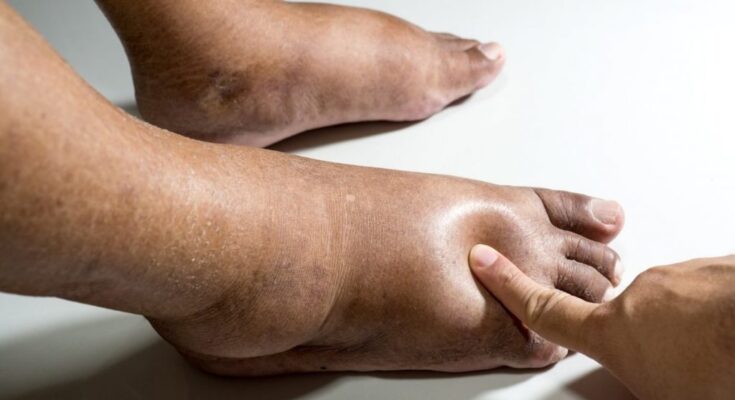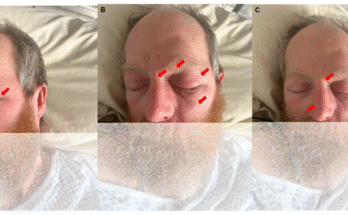Most people don’t think of their feet when it comes to heart health—but they should. Your feet can actually show early warning signs of serious heart problems, especially issues related to poor blood flow and clogged arteries.
Warning Signs in Your Feet
If you feel pain, numbness, coldness, or swelling in your feet or legs, don’t ignore it. These symptoms could be linked to poor circulation caused by blocked arteries—especially if they appear suddenly or get worse with activity.
This is often a sign of a condition called Peripheral Artery Disease (PAD) or Coronary Artery Disease (CAD). These happen when fatty deposits (plaque) build up inside your blood vessels, reducing the flow of oxygen-rich blood to your limbs and organs.
What Is Peripheral Artery Disease (PAD)?
PAD affects the arteries that carry blood to your legs and feet. When these arteries get blocked, you might feel cramping, tightness, or weakness in your legs—especially when walking or standing. In severe cases, it can lead to infections, wounds that don’t heal, or even the risk of losing a limb.
If you struggle to walk long distances, or often have leg pain or foot sores, it’s time to talk to a doctor.
How Doctors Check for Clogged Arteries
Doctors may check the pulse in your feet or do a test called the ankle-brachial index (ABI). This test compares the blood pressure in your ankle to the pressure in your arm. If the blood flow in your legs is lower than expected, it could mean your arteries are blocked.
If you have a family history of heart disease or diabetes—or if you’re noticing symptoms like foot swelling—it’s important to get checked early.
Poor Circulation and Its Effects
When your blood isn’t flowing properly, your feet and legs don’t get enough oxygen. This can cause:
- Numbness or tingling
- Pain when walking
- Cold feet or toes
- Slow-healing wounds
- Swelling (edema), especially in people with weak heart function
People with diabetes are at even higher risk. High blood sugar can damage nerves in the feet, making these problems worse.
How to Protect Your Heart and Feet
Good news: Many heart and circulation issues can be prevented or improved with healthy habits. Here’s what you can do:
- Exercise regularly: Aim for at least 20–30 minutes a day
- Eat heart-healthy foods: Choose fruits, vegetables, lean proteins, and avoid saturated/trans fats
- Stop smoking: Smoking damages blood vessels and increases your risk
- Control blood pressure and cholesterol: Take prescribed medicines if needed
- Manage blood sugar: Especially if you have diabetes
Why Your Feet Matter for Heart Health
Your heart pumps blood to every part of your body—including your feet. If your arteries are blocked, your feet are one of the first areas to suffer. On the other hand, keeping your heart strong means better blood flow and healthier feet.
It’s all connected: a healthy lifestyle supports both your heart and your lower limbs.
Final Thoughts
Don’t ignore your feet—they could be warning you about something serious. Pain, swelling, numbness, or slow-healing sores might seem small but could point to blocked arteries or heart issues.
If you notice any of these signs, see a doctor. Catching problems early can save you from bigger health risks later.



